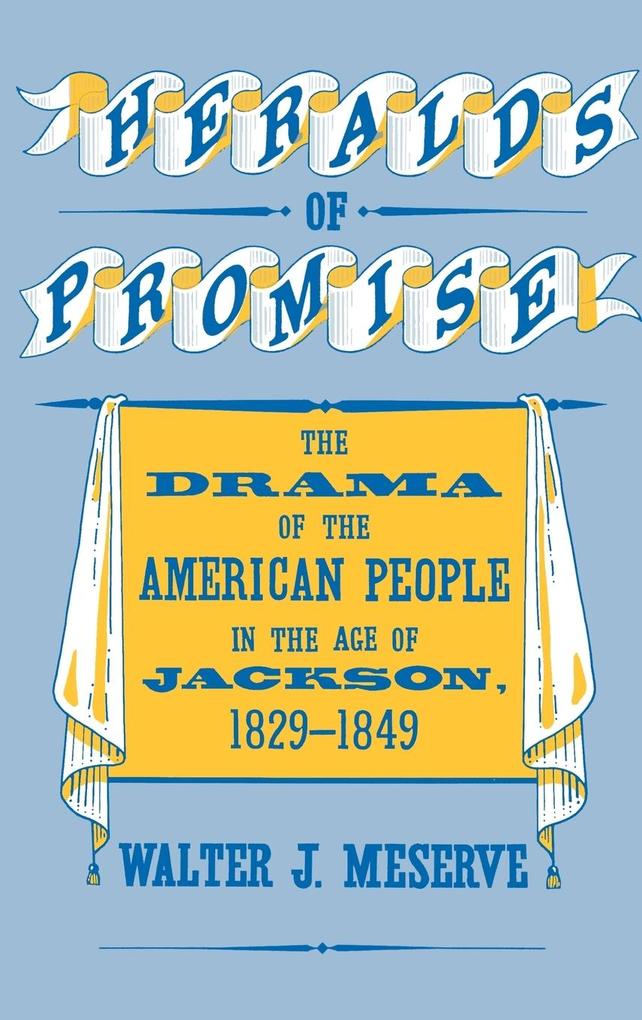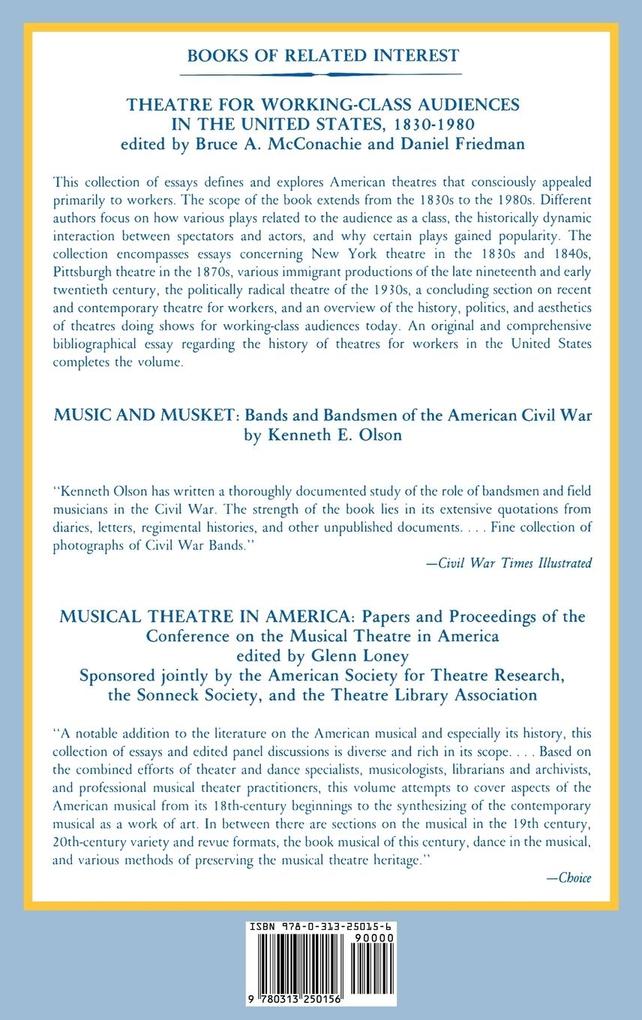?This is the second volume of Walter J. Meserve's history of The Drama of the American People.' In the first, An Emerging Entertainment, Meserve explored the development of American drama to 1828. Here, he examines the period 1829-49 and asserts that during the Jacksonian era there was an instant ... of time during which the rising sun of dramatic literature in America was clearly visible, even radiant, then it disappeared.' Meserve argues that the reasons for this disappearance are clear: that because of the times, the attitudes of the people and the demands of theatre audiences, none of the dramatists were encouraged to provide the native drama that many critics and enthusiastic supporters of both Jacksonian and Whig views urgently desired.' He develops this argument through a comprehensive examination of the plays and playwrights, actors and theatre managers, and audience attitudes of the period. Meserve admits that he presents his argument with a messianic enthusiasm, ' but it is a thoroughly documented enthusism, and this volume is an important addition to our understanding of the development of American drama. There are appendixes of American plays and of American playwrights, 1829-49, a selected bibliography, and an index.?-Choice













